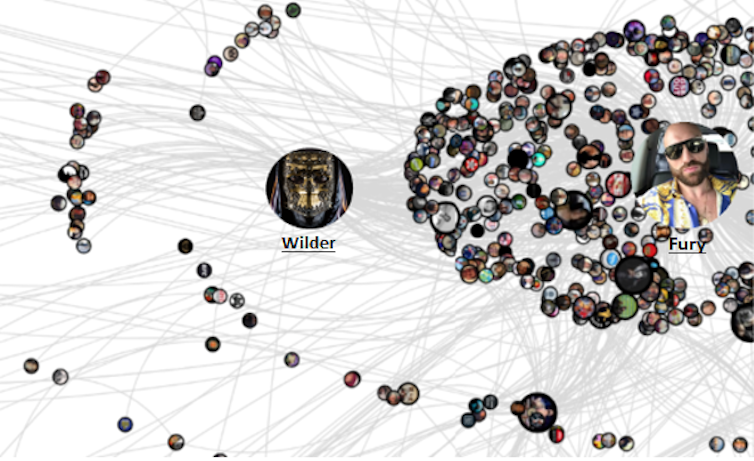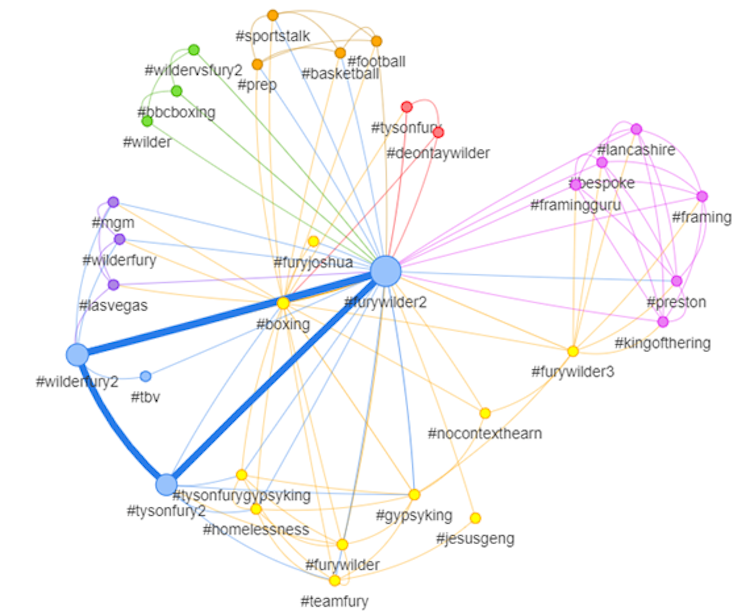Comment: Tyson Fury social media
Comment: Tyson Fury defeated Deontay Wilder in the social media fight
Published on: 27 February 2020
Writing for The Conversation, Wasim Ahmed and Alex Fenton discuss the battle of the boxers' personal brands that took place on social media.
Tyson Fury dramatically became the World Boxing Council’s heavyweight champion after knocking out Deontay Wilder in the seventh round of their fight on February 22 in Las Vegas. With US$25 million in guaranteed earnings, plus percentages of pay-per-view profits for each fighter, it was an incredibly lucrative match for everyone involved.
Fury was not only victorious in the ring, he also won the support of fans across the globe and clearly came top in the battle of the brands that took place on social media. We looked at the aftermath of the fight on Twitter to compare how each fighter’s personal brand performed around the world.
Fury has twice as many Twitter followers (1.4 million) as Wilder. Instagram is a little closer, with Fury on 3.4 million and Wilder on 2.8 million followers.

People tend to to follow winning athletes because it allows them to bask in their reflected glory. This is a psychological term that refers to our desire to associate ourselves with success or prestige. So when athletes switch teams, you can see their followers switch with them on social media. When footballer Cristiano Ronaldo moved from Real Madrid to Juventus, for example, Juventus gained 6.2 million followers – it’s been dubbed the Ronaldo effect.
We used a social network analysis tool to examine the discussions on Twitter directly after the Fury-Wilder fight took place. Our analysis was based on the hashtag #FuryWilder2 (the match was a long-awaited rematch following a draw between the two fighters in 2018) and can be seen in full here.
Much of the discussion focused on Tyson’s celebrations in the ring directly after the fight, where he sang a two-minute rendition of the song American Pie.
As the BBC tweet says: “It wouldn’t be Tyson Fury if there wasn’t a song”. This references how a big part of Fury’s popularity is linked to his ability to entertain crowds – often through singing. Thousands of Twitter users went on to engage with this tweet.

The cluster of Twitter users above shows how brand Fury won over the masses online, as well as getting the Las Vegas crowd to sing along with him in real life. Wilder’s account, meanwhile, received fewer mentions and overall was less influential in the network. Many celebrities and influencers, including boxing legends, took to Twitter to congratulate Fury after the fight, further strengthening brand Fury.
Brand building
A look at the hashtags around Fury also highlights the number of communities that flocked to his brand. We analysed the hashtags that were connected to the fight’s #FuryWilder2 hashtag.

The most used hashtags were all linked to Fury’s self-styled “Gypsy King” moniker. The #TeamFury hashtag was also very popular. We can also see links to different sports (#football and #basketball), locations (#Preston), causes (#homelessness) and even religion (#jesusgeng) – all of which jumped on the brand Fury bandwagon in the aftermath of the fight to gain exposure.
Athletes in all sports increasingly need to be visible across social media in order to build their brands. Gaining followers helps to secure big sponsorship contracts and leads to a more dedicated fanbase who will travel to attend fights and buy merchandise. This is because social media allows spectators to feel closer to the action, talk to other fans and feel closer to their heroes.
Read more: 'Hyperdigitalised' sports fans are connecting with their heroes like never before
But for every Tyson Fury social media success story there are stars who have fallen foul of engaging with fans on social media and posted without thinking. The nature of these platforms is that information travels at lightning speed and stars can go viral without being able to control the narrative. As new platforms emerge, such as TikTok, and new features are added to existing ones, we can expect even greater engagement from fans – and many more controversies, too.
Wasim Ahmed, Lecturer in Digital Business, Newcastle University and Alex Fenton, Lecturer in Digital Business, University of Salford
This article is republished from The Conversation under a Creative Commons license. Read the original article.



